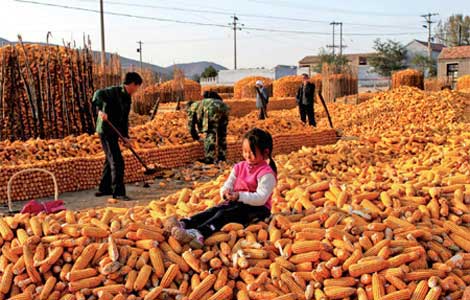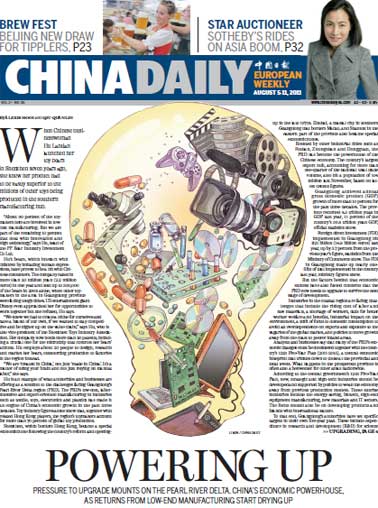Society
No cheap acid used in aged vinegar
Updated: 2011-08-08 07:53
By Zhou Wenting (China Daily)
BEIJING - A food-quality watchdog on Sunday dismissed claims that 95 percent of "Shanxi aged vinegar" is blended with a cheap acid that speeds up the brewing process.
The vinegar is famous for the time it takes to produce, usually at least one year. Yet, Wang Jianzhong, vice-chairman of the Shanxi Vinegar Industry Association, said recently that many producers cheat by adding glacial acetic acid, which reduces the fermenting time to just one month.
However, an official notice from the provincial food quality supervision and inspection center and comments by Wang's superior rebutted the claim.
"Aged vinegar products manufactured in Shanxi are safe and reliable," reads the notice.
Meanwhile, Cao Wenjie, chairman of the industry association, insisted that all Shanxi aged vinegar products are brewed entirely with grain.
He said Wang, an expert in marketing and sales, was not familiar with the production process.
Industry insiders have raised concerns that some businesses make vinegar by using excessive chemicals, even including a form of glacial acetic acid meant only for industrial use.
China has a national standard for blended vinegar that sets a maximum of 50 percent glacial acetic acid. However, both insiders contacted by China Daily said that it is virtually impossible to detect whether producers have added industrial acetic acid, and how much, creating a loophole for lawbreakers.
"It is difficult and costly to distinguish (between) edible acetic acid and its industrial counterpart, and even harder when the two are mixed together," said a specialist at the China National Research Institute of Food and Fermentation Industries, who refused to give his name.
He said most industrial acid is produced by electrolysis of petroleum or acetylene.
"The electrolysis reaction is complicated. It's difficult to say what impurities and heavy metals it contains and their impact on human health," he said.
According to the researcher, edible acetic acid is from cereal fermentation, which is more costly and requires a longer production process.
In an earlier interview with China National Radio, Wang said the way to identify fake aged vinegar is to check if sodium benzoate, a preservative, is listed among the ingredients.
"A fundamental characteristic of the vinegar is it does not need preservatives and will not go bad. So it can't be brewed vinegar if any preservative is used," he was quoted as saying.
Cao also rebutted this, saying the preservative has been allowed since the national standard for Shanxi aged vinegar was established in 2005.
"Acidity of traditional aged vinegar was over 6 (on the PH scale), but it was changed that year when four grades of acidity were developed - 4.5, 5, 5.5 and 6 - because of customer needs," Cao said. "Vinegar will deteriorate when the acidity is below 6."
A nutrition and food safety professor endorsed this statement.
"The acidity of vinegar has to be above 6 to maintain its ability to inhibit bacteria and fungi," Fan Zhihong, an associate professor at China Agricultural University, told China Daily.
The food-quality watchdog statement on Sunday added: "There is no case of adding extra preservatives or using preservatives exceeding quantity limits."
Cao said a new national standard for Shanxi aged vinegar might be implemented this year, under which the acidity would return to 6 to assure the public that the product is natural.
Also, the two-year shelf life will be abolished, which means it will survive long-term storage and consumption.
Shanxi in North China is a major consumer and producer of vinegar. It produces 600,000 tons of vinegar each year, or one-fifth of the national output.
China Daily
(China Daily 08/08/2011 page5)
E-paper

My Chinese Valentine
Local businesses are cashing in on a traditional love story involving a cow herder and a goddess
Outdoor success
Lifting the veil
Allure of mystery
Specials

Star journalist leaves legacy
Li Xing, China Daily's assistant editor-in-chief and veteran columnist, died of a cerebral hemorrhage on Aug 7 in Washington DC, US.

Sowing the seeds of doubt
The presence in China of multinationals such as Monsanto and Pioneer is sparking controversy

Lifting the veil
Beijing's Palace Museum, also known as the Forbidden City, is steeped in history, dreams and tears, which are perfectly reflected in design.
